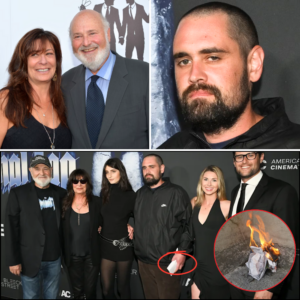At 02:56 PM +07 on Monday, May 12, 2025, Elon Musk stands as a towering figure in global innovation, recently named TIME Magazine’s Person of the Year for his groundbreaking work with Tesla, SpaceX, and X. With a net worth of $345 billion, Musk’s journey from a South African child selling candy to the architect of a tech empire is a testament to his relentless drive and entrepreneurial spirit. His early hustles—selling chocolate eggs door-to-door and coding a video game at 12—reveal the roots of a mindset that would later redefine industries. This article traces Musk’s formative years, his initial ventures, and the traits that propelled him to extraordinary success, while critically examining the narrative of his rise and its broader implications.
A Childhood of Curiosity and Grit
Elon Musk’s story begins in Pretoria, South Africa, where he was born on June 28, 1971, to a wealthy family. His father, an electromechanical engineer, and his mother, a model and dietitian, provided a backdrop of intellectual stimulation. Yet, Musk’s childhood was far from idyllic. He endured severe bullying at Pretoria Boys High School, an experience that forged his resilience. Despite these challenges, Musk displayed an early aptitude for technology and business. At 10, he received his first computer, a Commodore VIC-20, and taught himself programming. By 12, he had coded a space-themed game called Blastar, which he sold to a magazine for $500—a modest but telling first success.
Musk’s entrepreneurial instincts emerged even earlier. As a child, he and his brother Kimbal sold homemade chocolate Easter eggs door-to-door, playfully pitching themselves as “future capitalists.” This venture, though small, revealed Musk’s innate hustle and his ability to identify opportunities, traits that would define his later career. His voracious reading—spanning science fiction, physics, and engineering—further fueled his imagination, laying the intellectual groundwork for his future ventures. These early experiences, blending creativity with commerce, were the seeds of a mindset that saw no limits to what could be achieved.

The First Ventures: Zip2 and X.com
Musk’s formal entrepreneurial journey began after he emigrated to Canada in 1989 and later enrolled at the University of Pennsylvania, earning degrees in physics and economics. In 1995, at 24, he dropped out of a Ph.D. program at Stanford after just two days, driven by the internet boom. With his brother Kimbal and Greg Kouri, Musk founded Zip2, a web software company aimed at digitizing business directories for newspapers. Operating on a shoestring budget—starting with just $2,000 in Musk’s bank account and $28,000 from his father—the brothers worked out of a cramped Palo Alto office. Musk coded at night while the website ran during the day, often showering at the YMCA due to their lack of facilities.
Zip2’s innovation—an online city guide with maps and directories—secured contracts with major newspapers like The New York Times and the Chicago Tribune. However, Musk’s ambition to lead as CEO was thwarted by investors who installed a more experienced executive, demoting him to CTO. In 1999, Compaq acquired Zip2 for $307 million, netting Musk $22 million for his 7% stake. While a financial win, Musk later expressed frustration, feeling he hadn’t fully realized the internet’s potential—a sentiment that would drive his future ventures.
With his Zip2 earnings, Musk co-founded X.com in 1999, an online financial services company. The venture merged with Confinity, which had developed PayPal, and Musk briefly served as CEO before being ousted amid strategic disagreements. In 2002, eBay acquired PayPal for $1.5 billion, with Musk receiving $176 million after taxes. These early successes, though marked by setbacks, showcased Musk’s ability to pivot and scale ideas rapidly. They also provided the capital to fund his next ambitious projects, setting the stage for his tech empire.
Building the Empire: SpaceX, Tesla, and Beyond
Musk’s early hustle translated into a series of transformative ventures. In 2002, he founded SpaceX with a vision to make space travel affordable and colonize Mars, leveraging $100 million of his PayPal earnings. Despite near bankruptcy in 2008, SpaceX achieved milestones like the first privately funded rocket to reach orbit and secured over $22 billion in government contracts, building a $350 billion valuation by 2025. Musk’s focus on reusable rockets disrupted the aerospace industry, aligning with his childhood fascination with space and science fiction.
In 2004, Musk invested $6.3 million in Tesla Motors, becoming its chairman and later CEO in 2008. A $465 million Energy Department loan in 2010—secured through Musk’s persistent lobbying—helped Tesla produce the Model S and survive financial strain. Tesla repaid the loan by 2013, and by 2025, it led the electric vehicle market, unveiling autonomous taxi fleets and collaborating with Eaton on energy solutions. Musk’s ability to innovate under pressure, a trait honed in his early days, turned Tesla into a $1 trillion company at its 2021 peak.
Musk’s empire expanded further with ventures like Neuralink (2016), aiming to merge human cognition with AI, and The Boring Company (2016), tackling urban congestion with tunneling. His 2022 acquisition of Twitter, rebranded as X, for $44 billion, aimed to create an “everything app,” though its value has since dropped to $9.4 billion amid user decline and hate speech controversies. Despite these challenges, Musk’s ability to juggle multiple industries—each rooted in his early problem-solving mindset—underscores his extraordinary trajectory.
The Roots of Success: What Musk’s Early Hustle Reveals
Musk’s early ventures reveal key traits that fueled his success. First, his resilience—honed through childhood bullying and Zip2’s leadership struggles—enabled him to weather setbacks like SpaceX’s early failures and Tesla’s near collapse. Second, his self-taught skills, from coding Blastar to building Zip2’s servers, reflect a hands-on approach that persists in his leadership at Tesla and SpaceX, where he’s deeply involved in engineering. Third, his risk-taking, evident in selling candy and dropping out of Stanford, mirrors his later bets on unproven industries like electric vehicles and commercial spaceflight.
Musk’s childhood also shaped his futurist vision. His love for science fiction, inspired by authors like Isaac Asimov, drove his belief in humanity’s multi-planetary future—a vision realized through SpaceX. His candy-selling days taught him the value of direct customer engagement, a strategy he later applied to Zip2’s newspaper contracts and Tesla’s direct-to-consumer model. Moreover, his ability to learn from failure—whether losing control of Zip2 or being ousted from X.com—allowed him to refine his leadership, eventually balancing vision with execution at Tesla and SpaceX.
Critical Examination: Beyond the Rags-to-Riches Myth
The establishment narrative often casts Musk as a self-made genius, but this oversimplifies his journey. His early ventures benefited from privilege: his father’s $28,000 loan for Zip2, a significant sum in 1995, and his family’s wealth provided a safety net. A 2024 Washington Post exposé revealed Musk worked illegally in the U.S. during Zip2’s founding, raising ethical questions about his immigrant narrative. Additionally, his empire has relied heavily on government support—$38 billion in contracts, loans, and subsidies—contrasting with his DOGE role advocating for reduced government spending, a paradox that critics highlight.
Musk’s success also comes with controversies. His high-pressure work environments, criticized at Tesla and SpaceX, echo the grueling hours he endured at Zip2. Neuralink’s animal testing issues and X’s hate speech surge under his tenure reflect a pattern of prioritizing innovation over ethical concerns, a trait possibly rooted in his do-or-die mentality from childhood. While his hustle is undeniable, it’s often amplified by systemic advantages and a willingness to push boundaries—sometimes at others’ expense.
Conclusion
Elon Musk’s journey from selling candy in Pretoria to building a tech empire reflects a lifelong hustle rooted in resilience, self-education, and risk-taking. His early ventures—coding Blastar, scaling Zip2, and navigating X.com’s merger—laid the foundation for SpaceX, Tesla, and beyond, showcasing a mindset that thrives on solving big problems. Yet, his success isn’t a simple rags-to-riches tale; it’s intertwined with privilege, government support, and ethical trade-offs. As of May 12, 2025, Musk’s extraordinary achievements continue to inspire, but they also demand a nuanced view of the man behind the empire—a visionary whose roots reveal both brilliance and complexity.




